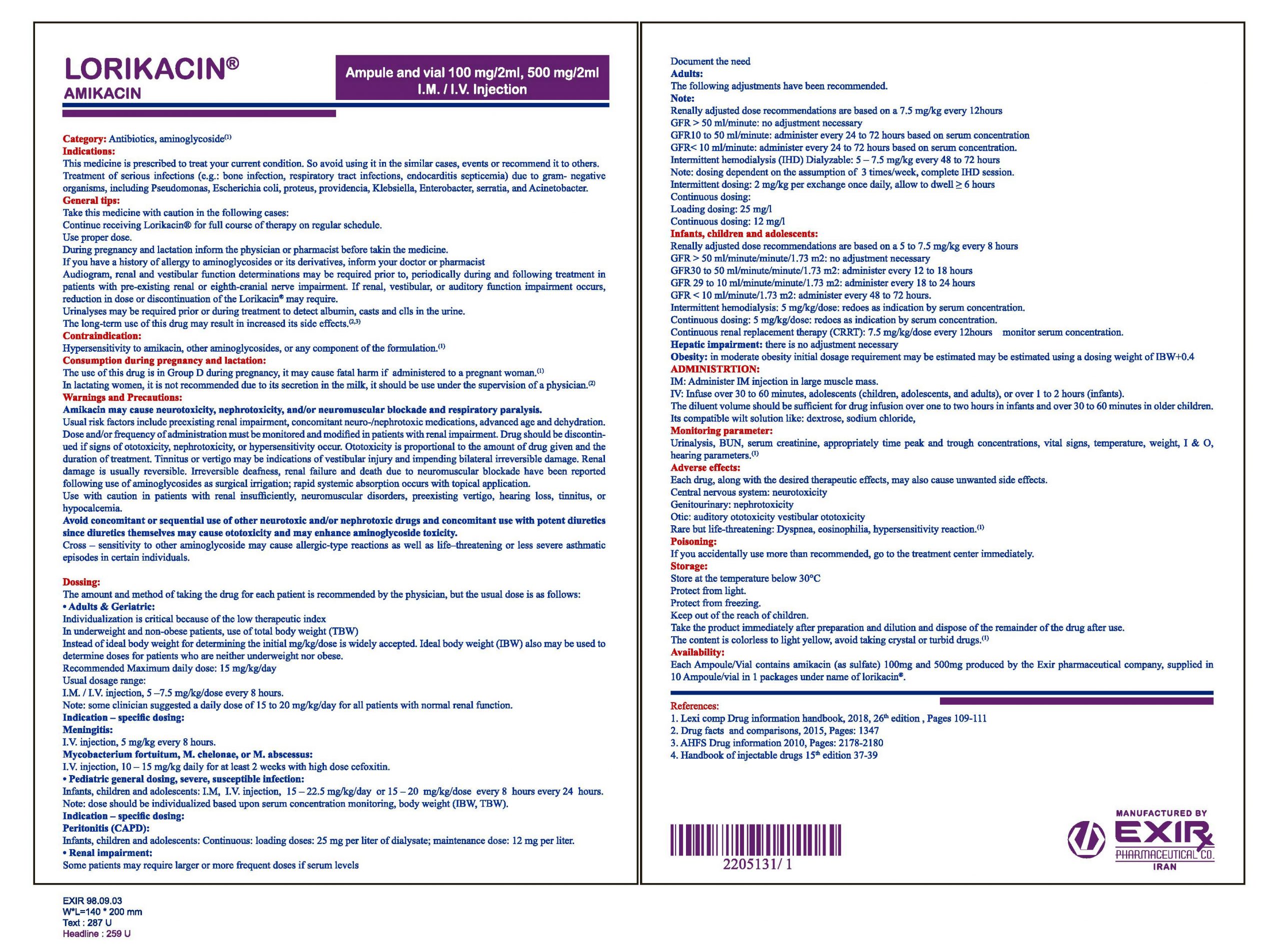AMIKACIN 500, 100-EXIR
Ampoule AMIKACIN 250, 100 mg/ml ( 2ml )

| Generic Name of Product | Brand Name | Dosage Form | Strength | Pharmacologic Group | Therapeutic Group | Unit Per Pack |
| Amikacin | Lorikacin | Ampoule | 100mg/2ml-500mg/2ml | Aminoglycoside | Antibacterial agent | 10 |
Indications And Usage | Indicated in adults, who have limited or no alternative treatment options, for the treatment of Mycobacterium avium complex (MAC) lung disease as part of a combination antibacterial drug regimen in patients who do not achieve negative sputum cultures after a minimum of 6 consecutive months of a multidrug background regimen therapy. As only limited clinical safety and effectiveness data for ARIKAYCE are currently available, reserve ARIKAYCE for use in adults who have limited or no alternative treatment options. This drug is indicated for use in a limited and specific population of patients. This indication is approved under accelerated approval based on achieving sputum culture conversion (defined as 3 consecutive negative monthly sputum cultures) by Month 6. Clinical benefit has not yet been established |
Administration | Instruct patients using a bronchodilator (‘reliever’) to first use the bronchodilator following the bronchodilator leaflet for use information before using ARIKAYCE. Pre-treatment with short-acting selective beta-2 agonists should be considered for patients with known hyperreactive airway disease, chronic obstructive pulmonary disease, asthma, or bronchospasm |
Contraindications | contraindicated in patients with a known hypersensitivity to any aminoglycoside |
Precautions | Hypersensitivity Pneumonitis, Hemoptysis, Bronchospasm, Exacerbation of Underlying Pulmonary Disease, Anaphylaxis and Hypersensitivity Reactions, Ototoxicity, Nephrotoxicity, Neuromuscular Blockade, Embryo-Fetal Toxicity. |
Adverse Reactions | Side-effects of amikacin are similar to those of other aminoglycosides. Kidney damage and ototoxicity (which can lead to hearing loss) are the most important effects, occurring in 1–10% of users. The nephro-toxicity and ototoxicity are thought to be due to aminoglycosides' tendency to accumulate in the kidneys and inner ear Amikacin can cause neurotoxicity if used at a higher dose or for longer than recommended Amikacin causes nephrotoxicity (damage to the kidneys), by acting on the proximal renal tubules |
Pregnancy and lactation | This drug is only recommended for use during pregnancy when there are no alternatives and the benefit outweighs the risk. |
Renal and liver Impairment | Adverse reactions specifically associated with overdose of amikacin have not been identified. Acute toxicity should be treated with immediate withdrawal of amikacin, and baseline tests of renal function should be undertaken. |
Laboratory Tests |

